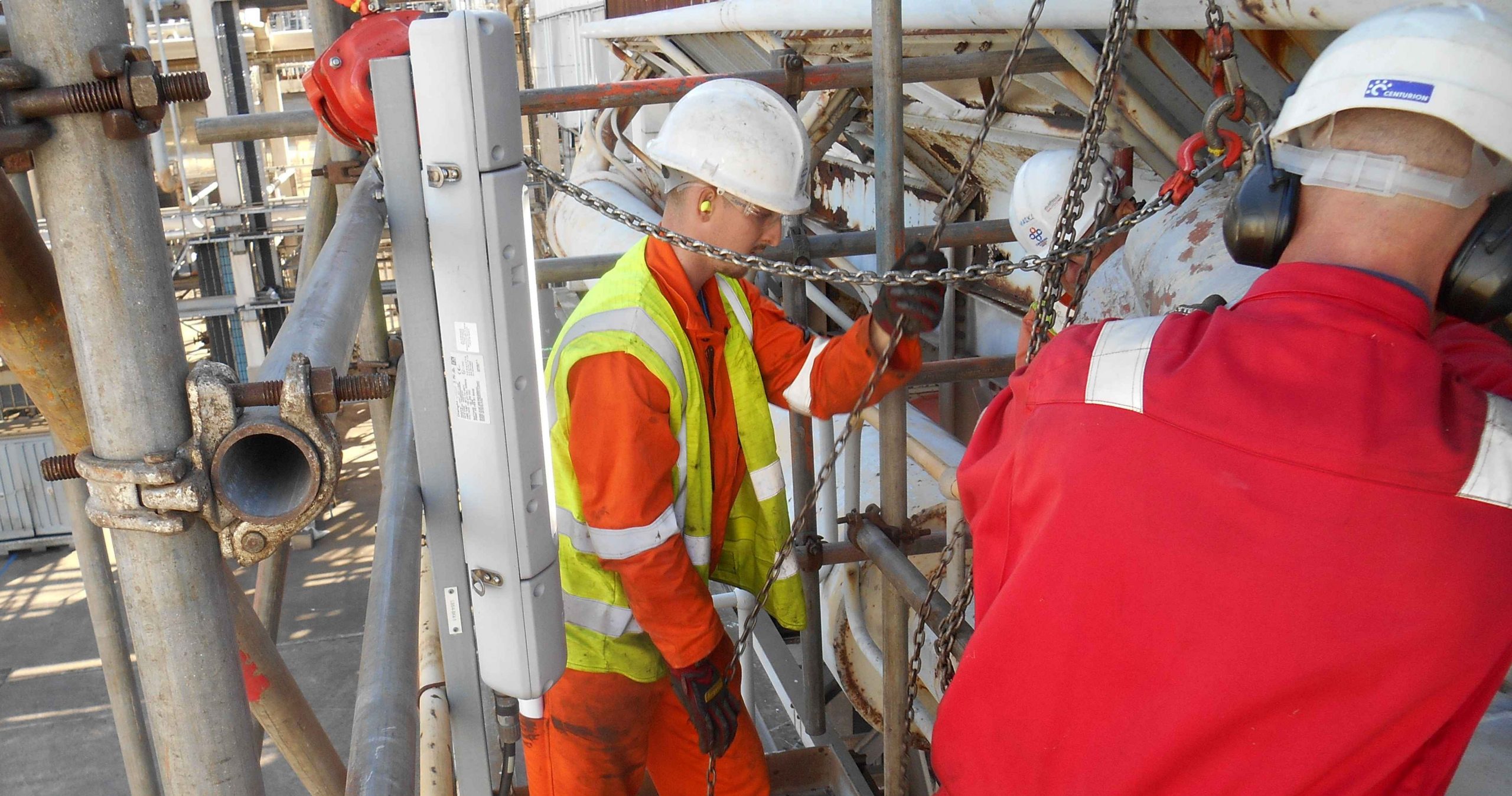Leaders of major engineering companies within the oil and gas sector have joined forces to improve competency assurance across the supply chain community.

Members of the new Industry Council sign the charter in support of Connected Competence.
BACK (L to R): Keith Scott, Petrofac; Shaun Dewar, Petrofac; Shaun Poll, Worley; Sandy Bonner, Bilfinger Salamis.
FRONT (L to R): Steve Hunt, Stork; Craig Shanaghey, Wood and Phil Davie, Aker Solutions.
Managing Directors from companies including Aker Solutions, Bilfinger Salamis, Petrofac, Stork, Wood and Worley signed an industry charter yesterday, in which they agreed to mandate the Connected Competence programme as a pre-requisite for employment with them as of the 1st April 2020.
Connected Competence aims to standardise and assure competence requirements for the contractor workforce. It was created by Government-sponsored skills body, the Engineering Construction Industry Training Board (ECITB), and major contractors within the upstream oil and gas sector, to address the inefficiencies and workforce inflexibility caused by operators differing demands for base level technical competence.
The companies, who provide a significant majority of the manpower required to maintain critical assets in the North Sea and beyond, are part of a new Industry Council to improve competency assurance across the supply chain community. In addition to founding companies, the Council meeting in Aberdeen was also attended by senior representatives from within the Scottish Government, Skills Development Scotland, Oil & Gas UK, Oil & Gas Authority and North Sea Operators.
The Council pledged to work collaboratively to ensure the industry certifies the technical competence of its workforce in a consistent manner, reducing barriers to the timely deployment of workers. At the meeting Craig Shanaghey, Industry Council Chair and President of Operations at Wood, committed to exploring how Connected Competence can be used to mobilise the core and transient workforce ahead of a challenging shutdown period in 2020. Oil and Gas UK has suggested this will require an additional 4,500 workers and the increased demand could result in resources becoming significantly stretched during the shutdown season window and the increased risk of un-skilled labour entering the market.

ECITB CEO Chris Claydon
Chris Claydon, Chief Executive of ECITB, said: “This competence assurance initiative has the potential to deliver a step change in productivity and safety for the oil and gas sector as well as the wider engineering construction industry.
“The benefits are numerous, not least in helping to mobilise skilled workers to the projects that need them. This includes supporting the transfer of workers to other energy sectors when they are required, thereby helping to retain skills within the wider engineering and construction industries.”
Craig Shanaghey said: “For too long, the oil and gas industry has suffered from the lack of a common approach to competence assurance, resulting in unnecessary costs and severely inhibiting the mobility of our workforce.
“Faced with the need to mobilise thousands of additional workers next year and ensuring a strong safety culture is maintained, the Connected Competence programme is critical to the success of the supply chain and will ensure the wider industry benefits from a competent and skilled workforce required to achieve Roadmap2035.”
Under the Connected Competence programme, workers undertake a cycle of practical tests designed to prove ongoing technical competence. By passing the tests, workers are able to demonstrate they have the necessary craft or technical skills recognised through a standard model eliminating costly retesting and retraining. The competency passport will also enable workers to more easily transfer to other energy sectors which experience peak demands similar to Oil & Gas, thereby helping to build a more resilient, mobile and sustainable contractor workforce.
For more information on Connect Competence visit: www.ecitb.org.uk/connected-competence
ENDS





